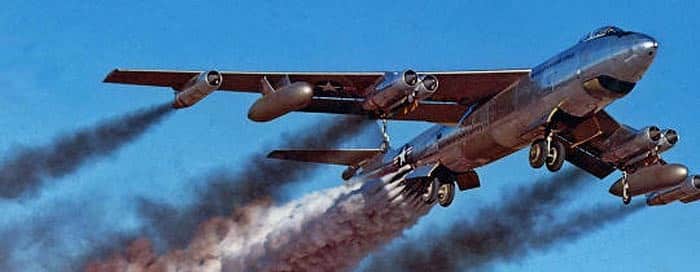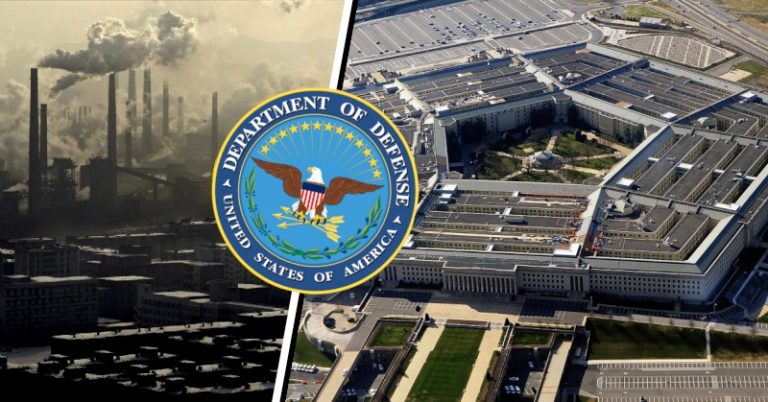
Military and Conflict GHG Emissions:
From Understanding to Mitigation
Conflict and Environment Observatory
Military Emissions Gap Conference
Oxford University, September 26, 2023

LONDON (August 31, 2023) — Once indirect sources are included, it is estimated that militaries are responsible for around 5.5% of global greenhouse gas emissions. Emissions linked to warfare contribute further to this figure. Because reporting of military and conflict emissions to the UNFCCC is largely voluntary, data is often absent, incomplete or hidden — this is the military emissions gap.
As a result of this exemption, the military sector has lagged behind in addressing its outsized contribution to the climate crisis. With militaries across the globe beginning to consider the impact that climate change will have on national security and on their operations, it is imperative that emissions reductions and decarbonisation receive equal attention.
This one day conference brings together academia, civil society and industry experts to consider how best to mitigate the military’s contribution to the climate crisis, and how to better understand the emissions footprint of armed conflicts.
Programme
Panel 1: An overview: Assessing the military’s carbon footprint (9:30-11:00 BST)
In this introductory session, a panel of experts will outline the sources of military emissions throughout the entire lifecycle.
- Chair: Benjamin Neimark — Concrete Impacts
- Carlos Ferreira — Center for Industrial Ecology
- Linsey Cottrell — The Conflict and Environment Observatory
- Magnus Sparrevik — Norwegian University of Science and Technology
- Reuben Larbi — Concrete Impacts, Lancaster University
Panel 2: From Bases to Bombers: Assessing the military’s organisational emissions (11:15-12:45 BST)
Scope 1 and 2 emissions are at the heart of the military carbon footprint. These encompass the fuel use of all military vehicles — on land, in the air, and on or in water — and the energy use of military bases — including direct heating and electricity use. This panel will examine key data, identifying emerging lessons for emissions reporting standards, as well as looking at some historical causes of reductions.
- Chair: Doug Weir — The Conflict and Environment Observatory
- Dr Stuart Parkinson — Scientists for Global Responsibility
- Professor Neta Crawford — University of Oxford
- Dr Oliver Heidrich — University of Newcastle
- Additional speaker tbc
Panel 3: Understanding Wartime Emissions: Lessons from Ukraine (13:45-15:15 BST)
Russia’s war in Ukraine has contributed to unprecedented interest in the emissions footprint of armed conflicts, encouraging novel efforts to comprehensively estimate its emissions. Emissions from the war zone, and its impact on emissions elsewhere were estimated for the first 12 months of war. This panel will discuss the initial results, and the numerous challenges in determining impact emissions sources, and around data collection and methodologies.
- Chair: Linsey Cottrell — The Conflict and Environment Observatory
- Lennard de Klerk — Initiative on GHG Accounting of War
- Mykola Shlapak — Initiative on GHG Accounting of War
- Rostyslav Bun — Lviv Polytechnic National University, WSB University
- Ladan Abrari — LUT University
- Axel Michaelowa — Perspectives Climate Group, University of Zurich
Panel 4: Military Carbon Footprints: How do we decarbonise? (15:30-17:00 BST)
Decarbonising the military will require a combination of mitigation solutions, including developing and adopting new technologies, use of nature-based solutions across the military estate, education, behavioural change and even rethinking military strategy. This panel will discuss the broad and diverse range of possible mitigation actions, and the challenges of implementing them.
- Chair: Dr Sarah Ashbridge — Principal Analyst, DSTL
- Duncan Depledge — Net Zero Militaries project, Loughborough University
- Finlay Asher — Green Sky Thinking, Safe Landing
- Dr Karen Bell — Glasgow University
- Additional speaker tbc
Organizers
This conference is being predominantly funded by UKRI-ESRC Concrete Impacts and is jointly organised by:
- Concrete Impacts
- Conflict and Environment Observatory
- Initiative on GHG Accounting of War
- Scientists for Global Responsibility
- University of Oxford,Department of Politics and International Relations
- QMUL, Institute for Humanities and Social Sciences
For further information, please contact ellie(@)ceobs.org.
Register to Join the Conference Online Here
Attendance in person is by invitation only. If you would like to be considered for an in-person invitation, please contact ellie(@)ceobs.org
For more information on the programme and speakers, please visit https://ceobs.org/conference-military-and-conflict-ghg-emissions-from-understanding-to-mitigation/
